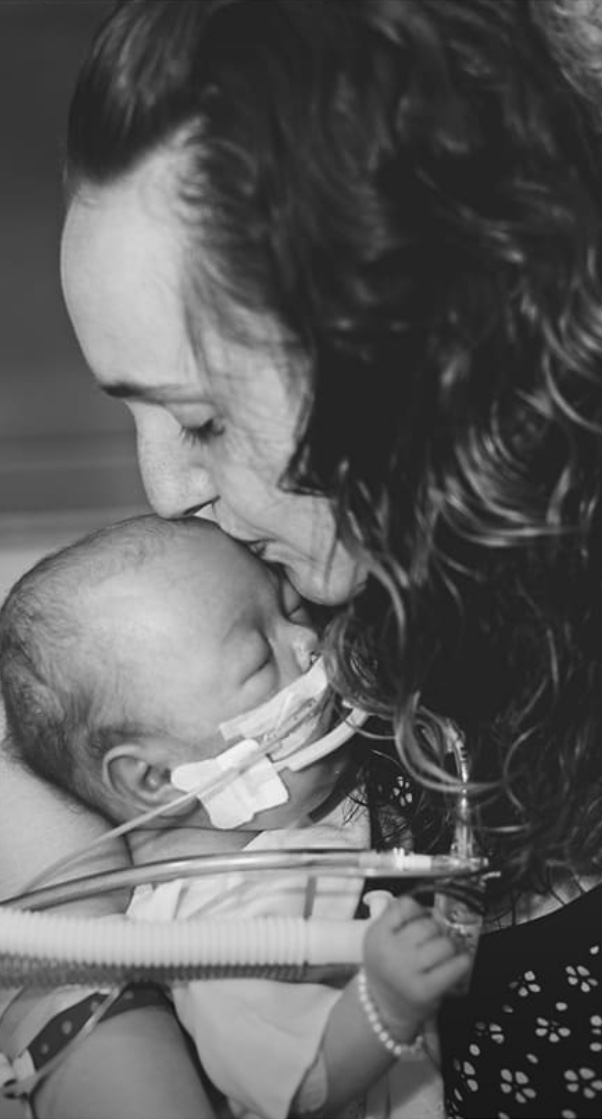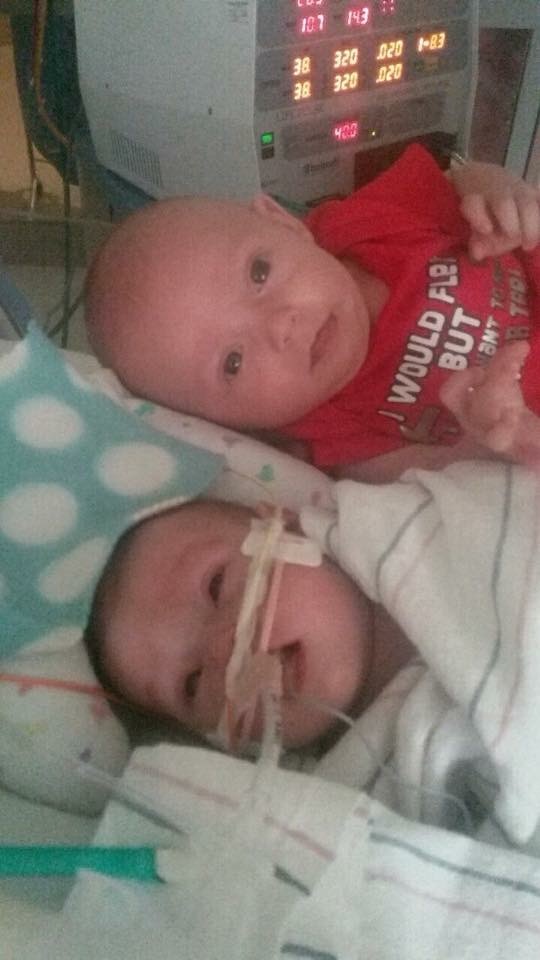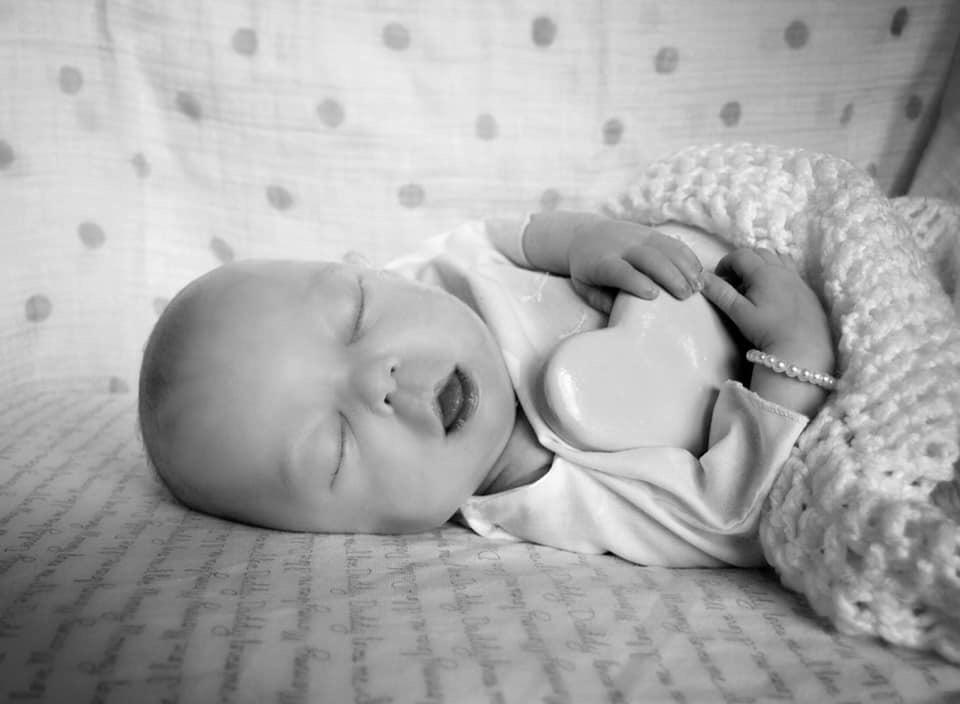
Melissa Justice with her daughter, Abigail
In honor of October being Pregnancy and Infant Loss Remembrance Month, we want to recognize families who have lost loved ones to PKD. We recently reached out to Melissa Justice, a member of the PKD community, to hear her story and honor the life of her daughter:
What is love?
Love is finding out you’re pregnant, with not just one baby, but two babies. Love is finding out you have been blessed with one girl, one boy. Love is watching your other little girl and boy excited that they have gotten one of each. But this story also has a lot of feelings. Sadness. Fear. And a loss for words.
I’m 20 weeks pregnant and the doctor shows me an ultrasound. “I’m sorry to tell you this, but the baby girl has PKD. A genetic disorder.” What does this mean? My boyfriend and I asked, curiously. “We don’t have a crystal ball as to what this may mean for your child.” We found out she had a 50/50 chance of survival. We leave in tears. We research for days online what this all meant. We finally name the twins, Damian And Abigail. A month or so later, there’s a baby shower. Filled with love, and everything blue and pink.
I’m now 22 weeks. I’m high risk, seeing a doctor once a week. Abigail’s kidneys are growing fast and huge in size. She also is losing amniotic fluid. It’s explained that she may not make it out alive. I loved the twins already so much. I prayed every day. Talked to my stomach every day, letting her know how loved she was.
I’m 33 weeks. I head to a regular check-up, only to be told I have to go get an emergency c-section. I’m prepped and eager to meet my twins, even though I know it’s super early. Abigail comes out not breathing. Damian is laid on my chest. I watch them leave with my baby girl, not even getting to hear a single cry (and I never did). At 9 p.m., I’m finally able to see and meet my babies.

Abigail with her twin, Damian
Love is seeing both of your babies alive. Love is having two more babies to add to our home. But quickly, the happiness disappeared and reality appeared. Every day, Abigail is getting more and more critical. Tests are run every day, her kidneys growing more and more. Blood transfusions. X-rays. Medications. Sedations on her bumpy days. She struggled to urinate. She struggled in so many aspects of her health, even blood pressure.
Love is being there every day, by her side, helping with her care, holding her hand, or holding her (which was only for a couple minutes and not very often). Love is all the nurses working every day to save her.
We’re on day 85. The doctors hold a meeting. Abby will not get better. Abby is critical. Abby is suffering. Her kidneys keep growing. She’s too small for a transplant. She’s going to get worse, not better.
Love is making the decision, on July 11, 2017, to withdraw her health. Abby is almost three months, and so beautiful. Head full of curls, looking just like her twin, Damian. She is baptized with her brother, and at noon on July 12, 2017, her life support is pulled.
Love is screaming, holding your daughter as she takes her last breaths in your arms. The nurse checks, her heartbeat has stopped. 1:33 p.m. I clench her close, kissing and hugging, and uncontrollably crying. Why me? Why us? Why her? Love is my support system and nurses running to my side to hug and cry with me. Love is seeing the very nurses that cared for her cry. Love is seeing a loved one in pain and stopping their suffering.

Abigail Musser
Love is what we have learned from this devastating experience. Our love for Abby. And because of Abby, we continue to help the PKD Foundation. We donate on her birthday and her angelversary. Love is also our family donating her kidneys to the PKD Foundation. We will continue to donate, in hopes of a cure, so nobody has to endure the pain of losing their child or any family member.
Love is sharing her story to raise awareness for PKD and infant loss.
What’s your PKD story? Share with our community on the Voices of PKD page.









Tragic story 🙁 Is there more info? Was this ADPKD or ARPKD? Do the parents have PKD? As a PKD parent reading this, this makes me exceptionally afraid of having another child! I’m sure that’s not the intent, but a bit more info here would be very very helpful.
Hi Mark,
I believe she had ARPKD, which is having the disease in full. That is what my daughter had when she was born. ADPKD is when you are born with it, but the symptoms usually don’t show up till you are in your 20’s or so. My daughter, Monica, was born with ARPKD and then died 2 days later after being taken off of life support. She only had 1 kidney and no urethra tube to her bladder and the whole kidney was cystic. She had emergency surgery to place a dialysis machine to her bladder but since she was premature, there were no transplants available and her lungs were underdeveloped and she underwent respiratory arrest. I was so afraid of having another child like this and never had another child. Here is a useful link I think will help with your questions. I wish the internet was available when I was going through all of this. I felt so alone and had no support. Being a part of a group will help tremendously. And what has helped me the most is knowing that my daughter is in Heaven, happy, healthy and whole with Jesus. We will be together again one day! God bless you. Lori https://www.niddk.nih.gov/health-information/kidney-disease/polycystic-kidney-disease/autosomal-recessive-pkd
Hello, I am Abigail’s mother. She has ARPKD. And both her father and I are carriers. Therefore, we’ve actually been told we should no longer conceive and I had my tubes tied after the twins were born.
Approximately 30% of babies with ARPKD die at birth. But there are also some very rare cases of ADPKD that also present severely at birth. Every case is different and there is no rhyme or reason for the outcome of each pregnancy, even within one family. We hope there is a good outcome for all children with PKD which is why research is so important.
Thinking of Abigail and all of the other babies who have passed away from PKD and all of those living with the disease.